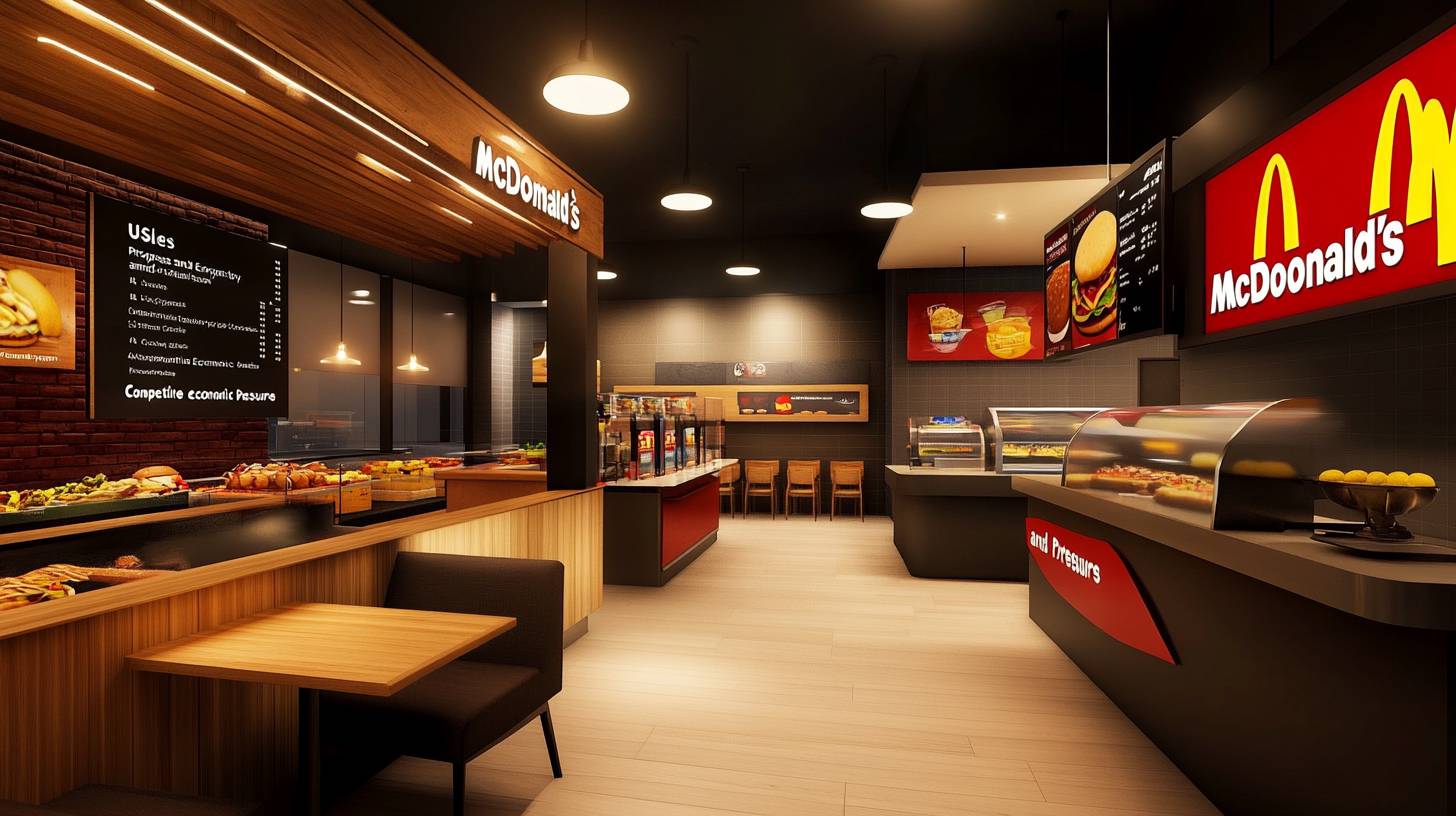
mcdonald’s faces challenges with sales drop and shifts in consumer behavior
McDonald’s is presently dealing with a difficult phase, as its global sales figures are under strain. The company’s third-quarter earnings report for 2024 indicated a 1.5% decline in global comparable sales compared to the previous year, with net income decreasing by 3%. This decline mirrors wider industry trends since the quick-service restaurant (QSR) sector is experiencing notable obstacles, especially regarding consumer habits and spending patterns.
In the United States, McDonald’s recorded a slight 0.3% rise in sales, but this was offset by a minor reduction in comparable guest counts. CEO Chris Kempczinski recognized that the QSR industry is confronting widespread issues, with customer traffic remaining pressured. He pointed out that while the company had expected a challenging backdrop in 2024, its performance has not met projections.
“QSR traffic has been under pressure, reflecting challenges pervasive across the industry,” stated Kempczinski. “And despite our anticipation of a tough environment in 2024, our performance thus far has not lived up to our expectations.”
A significant factor contributing to McDonald’s difficulties is the alteration in consumer behavior in response to soaring prices. A recent survey from LendingTree revealed that 62% of Americans are consuming less fast food due to elevated costs. This trend is likely to be seen in other regions, including Australia, where inflationary pressures have similarly affected consumer spending tendencies. As Australian consumers become more cost-conscious, fast-food brands like McDonald’s may encounter parallel hurdles in sustaining traffic and sales growth.
Despite these challenges, McDonald’s has found some success with its U.S. Meal Deal, particularly appealing to lower-income consumers. The offer, which includes a McChicken, four-piece chicken nuggets or a McDouble, along with fries and a beverage, has allowed the company to capture market share in this demographic. CFO Ian Borden remarked that customers opting for the meal have been returning more often, offering a glimmer of hope amidst the overarching sales downturn.
For Australian investors and business leaders, McDonald’s present circumstances highlight the necessity of recognizing consumer price sensitivity in a high-inflation context. With inflationary pressures continuing to impact household expenditures, businesses within the fast-food sector may need to revise their pricing tactics and value propositions to sustain customer loyalty and boost traffic.
effects of E. coli outbreak on U.S. sales and recovery strategies
The recent E. coli outbreak in the U.S. has introduced additional complexities to McDonald’s recovery attempts. The health scare, which necessitated the temporary withdrawal of the Quarter Pounder from menus nationwide, has already started to impact the company’s U.S. sales. Data from Placer.ai indicated that restaurant visits plummeted by 6.4% year-over-year on October 23, the day the outbreak was made public. This decline accelerated in the subsequent days, with visits contracting by 9.1% on October 24 and an additional 9.4% on October 25.
Historically, incidents concerning food safety can lead to prolonged impacts on consumer trust and visitation patterns, particularly in the fast-food sector, where confidence in product safety is crucial. For McDonald’s, the timing of this outbreak is particularly challenging, as the company was already struggling with sales declines and shifts in consumer behavior. The potential for lasting harm to the brand’s reputation could further complicate its attempts to regain traction in the U.S. market.
Nonetheless, McDonald’s has acted quickly to tackle the situation. CEO Chris Kempczinski voiced severe concern regarding the outbreak, emphasizing that the company had not faced such a serious public health crisis in the U.S. for over 40 years. McDonald’s has since pinpointed the source of the contamination and initiated preventive measures to guarantee the safety of its products in the future. The company intends to reinstate the Quarter Pounder to its menus in the upcoming week after securing a new supply of beef patties from its suppliers.
“The recent series of E. coli cases is profoundly troubling, and hearing the reports of how this has impacted our customers has been distressing for us. On behalf of the entire system, we sincerely apologize for what our customers have endured,” expressed Kempczinski.
While the prompt response may assist in minimizing the long-term ramifications of the outbreak, the immediate effects on sales are unmistakable. For Australian investors, this incident serves as a cautionary tale regarding the potential hazards associated with food safety in the fast-food industry. A single health scare can yield extensive consequences, not just concerning lost sales but also regarding brand trust and customer loyalty. As McDonald’s strives to rebound from this setback, it will be vital to observe how quickly the company can restore consumer confidence and whether similar challenges could arise in other markets, including Australia.
In the Australian market, where McDonald’s holds a substantial presence, the insights gleaned from the U.S. outbreak are particularly pertinent. Australian consumers are increasingly attentive to food safety and quality, and any analogous incident could significantly influence local sales. Moreover, with inflationary pressures already impacting consumer spending trends, a food safety scare could further intensify the challenges confronting the fast-food sector. For Australian business leaders, the essential lesson is the significance of proactive risk management and clear communication in fostering consumer trust during crisis periods.

